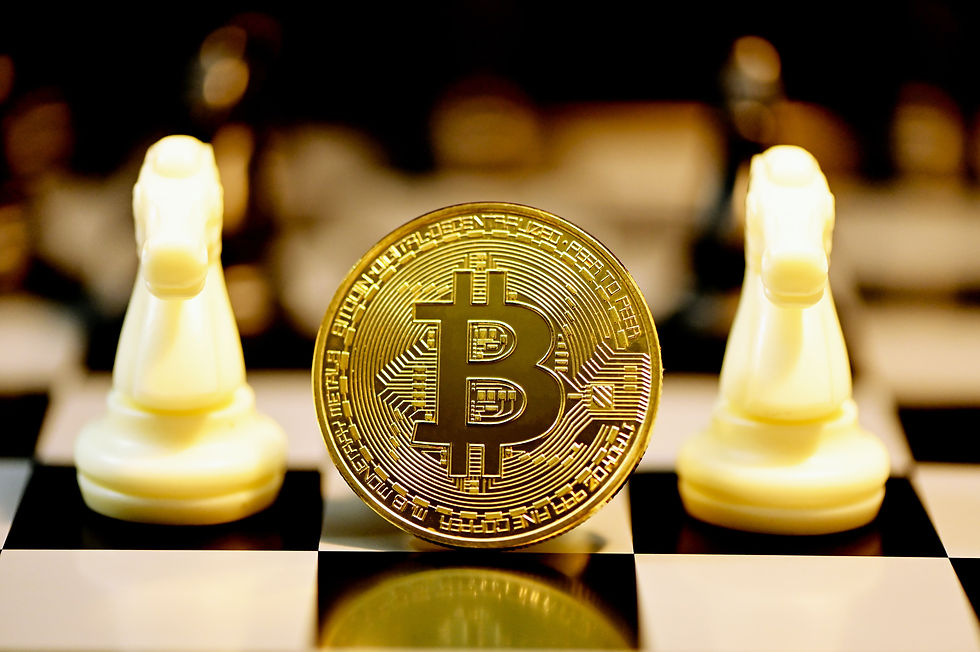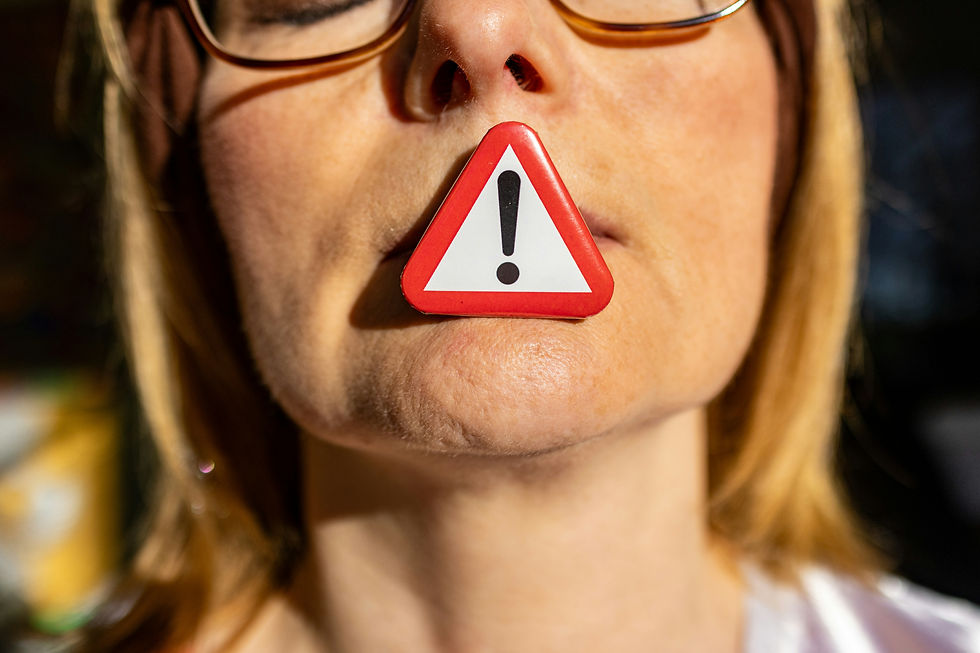5 Surprising Ways to Improve Bitcoin Mental Health
- Christine Walter

- Jul 29, 2025
- 4 min read

Bitcoin Might Be Decentralized—But Your Nervous System Isn’t
Bitcoin was designed to be trustless, transparent, and resilient. But the humans who buy it? Not so much.
If you’ve ever:
Checked the chart more than 30 times in a day
Felt euphoric from a green candle, or depressed from a red one
Lost sleep over missed trades or future predictions…
You’re not alone. You’re just human—with a nervous system that wasn’t designed for 24/7 volatility.
The good news? You can train your nervous system to handle Bitcoin's chaos without burning out. Below are 5 surprising, research-backed ways to support your mental health in crypto—plus one bonus tool you’ve probably never heard of.
Let’s make Bitcoin investing feel less like emotional whiplash and more like calm conviction.
1. Turn Off the Candle Charts—Try “Delayed Data Days”
What it is: Most crypto investors watch live charts like it’s a heartbeat monitor. But constant monitoring activates the brain’s dopamine and cortisol systems, reinforcing compulsive behaviors.
Instead, try “Delayed Data Days”: check price only once every 24 hours on a schedule (e.g., 8am), or use 24-hour delay tools once per week.
Why it works:
Variable-ratio reward systems (like real-time price charts) are highly addictive—similar to slot machines.
Research from the CFA Institute shows over-monitoring leads to poorer returns due to overtrading.
Reducing exposure to rapid feedback loops gives the prefrontal cortex time to process and make rational decisions.
Backed by: Dr. Anna Lembke, Dopamine Nation | CFA Institute | B.F. Skinner behavioral studies
2. Create a Volatility Ritual (That Involves Your Body)
What it is: Instead of reacting with your mind, react with your body. Every time Bitcoin moves more than 5% in a day, do a pre-planned “volatility ritual”: 20 jumping jacks, breathwork, a cold shower, or even lying on the floor.
Why it works:
The polyvagal nervous system responds faster to physical input than thought.
Movement activates the vagus nerve, reducing sympathetic arousal (fight/flight).
Trauma expert Bessel van der Kolk emphasizes that “the body keeps the score”—and also rewrites it.
Backed by: Dr. Stephen Porges (Polyvagal Theory) | Van der Kolk | Harvard mind-body studies
3. Use AI to Catch Your Emotional Biases Before They Cost You
What it is: Before making a trade or portfolio move, ask an AI (ChatGPT, Replika, or a journaling bot) to help you explore your emotional state.
Sample prompt:
“I’m about to trade. Please ask me questions to uncover if I’m acting from fear, greed, or grounded decision-making.”
Why it works:
Reflective journaling reduces emotional reactivity and improves clarity.
AI provides a nonjudgmental mirror—something even the best traders lack.
Helps identify hidden drivers like revenge trading, loss-chasing, or fear of missing out.
Backed by: Dr. James Pennebaker (emotional writing) | Behavioral economics (loss aversion, anchoring) | NLP feedback loops
4. Reframe “HODLing” as “Anchored Holding”
What it is: “HODL” started as a typo. Now it’s a battle cry. But it often sounds like an emotional breakdown: “I’m holding on for dear life.” That framing keeps your nervous system on edge.
Try calling it “Anchored Holding”—a conscious, regulated, long-term decision made from clarity, not chaos.
Why it works:
Language shifts neural perception.
Framing investing as anchored gives your brain a sense of safety and choice, reducing compulsive behaviors.
Cognitive reappraisal—reframing experiences—has been proven to boost emotion regulation and decrease amygdala activation.
Backed by: Gross & Thompson (2007) | Sapir-Whorf Hypothesis | Positive psychology studies
5. Rewire Your Mind Using the Bitcoin Halving Cycle
What it is: Stop thinking in hourly candles. Start thinking in four-year cycles. Bitcoin’s design rewards the patient. Align your emotional rhythm with the halving cycle, not market hype.
Ask yourself:
What would my investing look like if I only checked in once per quarter?
How would I feel if I made peace with Bitcoin as a decade-long play?
Why it works:
Time perspective theory shows that future-oriented people are calmer and make better long-term decisions.
Aligning your mental timeline with Bitcoin’s actual monetary policy helps reduce emotional dissonance.
Big-picture thinking activates the default mode network, increasing strategic clarity and decreasing anxiety.
Backed by: Dr. Philip Zimbardo (Time Perspective Theory) | Halving cycle research | Harvard Business Review (temporal framing studies)
Bonus Strategy: Use “Nature Pairing” for Chart Detox
What it is: Every time you check the charts, pair it with a 3-minute walk outside, staring at something green or blue. You can also set a “Nature First” rule: Touch grass before touching the charts.
Why it works:
Green and blue spaces reduce cortisol levels and sympathetic arousal
Walking increases bilateral stimulation in the brain (also used in trauma therapy like EMDR)
This habit trains the brain to associate crypto stress with nervous system recovery—not spirals
Backed by: University of Exeter (green space + mental health) | EMDR neuroscience | Nature & Mental Health meta-analyses (2021)
Bitcoin Might Be the Future—But Your Body Is Still Ancient
Your nervous system is wired for connection, rhythm, and recovery—not constant volatility, red candles, and infinite decision fatigue.
So whether you're a trader, a founder, or a quiet HODLer with dreams of generational wealth: Your real edge isn’t your coin. It’s your clarity.
Your brain doesn’t just need a better strategy. It needs space, regulation, and rituals that make you mentally rich—no matter the market.
Download the Crypto Regulation Toolkit
Ready to turn emotional chaos into calm conviction?
👉 Get the Crypto Regulation Toolkit Created by a licensed therapist and coach, this free download helps you:
Decode your emotional trading patterns
Regulate your nervous system during volatility
Make long-term decisions with short-term clarity
Click Here: BitcoinMentalHealth to download now
Checkout New Book BitcoinMental™
"The greatest edge in Bitcoin isn’t your wallet. It’s your mental state."



Comments